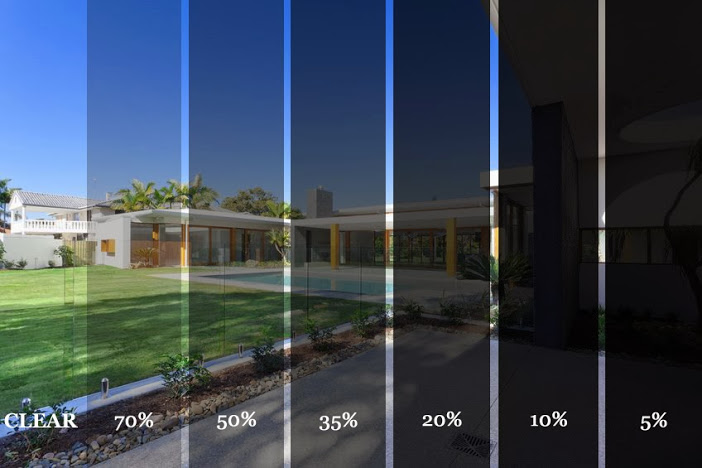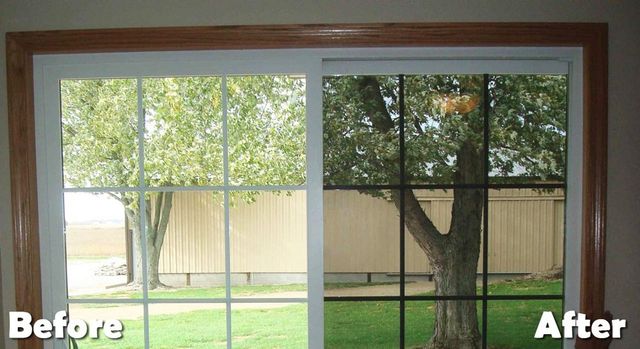Economical Residential Window Tint Options for every single Budget
Wiki Article
Exactly How Residential Home Window Tinting Improves Your Home's Power Effectiveness
Residential home window tinting provides an engaging remedy for property owners seeking to boost energy effectiveness within their living rooms. By using specialized films to home windows, it effectively decreases warm transfer, therefore maintaining indoor temperatures and decreasing the need for excessive heating or cooling.Comprehending Home Window Tinting
Recognizing home window tinting is important for property owners seeking to boost both convenience and power performance in their home. Residential Window Tint. Home window tinting involves the application of a thin film to the interior or exterior surface of glass windows. This film can dramatically modulate the amount of sunlight and heat that enters a home, hence affecting interior climate conditionsThere are different kinds of window tinting films available, each with distinct residential or commercial properties. Colored movies soak up solar power, while reflective films deflect it away from the glass surface. Ceramic movies offer a balance of visibility and warmth being rejected, making them a preferred option among property owners. The effectiveness of home window tinting is often gauged by its Visible Light Transmission (VLT) percent, which suggests how much light can pass through the film.
Advantages of Energy Performance
Home window tinting not only enhances aesthetic appeals however likewise plays a considerable role in improving energy performance within property spaces. By decreasing heat transfer with home windows, tinted films create an extra secure indoor environment, which can cause substantial reductions in energy consumption for heating & cooling. This energy performance equates right into lower utility costs, offering property owners with significant long-term financial savings.
In addition, window tinting enhances the convenience of living areas. By decreasing glare and blocking harmful UV rays, colored windows create an even more pleasurable atmosphere, which can lead to boosted wellness for occupants. The protection versus UV rays also aids protect furniture and flooring from fading, adding to the durability of home things.
Exactly How Tinting Works
Tinting films operate with a mix of sophisticated products and innovations developed to regulate the amount of solar power going into a home. Primarily made up of polyester, these films often include metallic or ceramic particles that absorb and show warmth. This double capacity allows them to significantly minimize the penetration of ultraviolet (UV) rays and infrared radiation while permitting noticeable light to pass through.The efficiency of home window tinting is measured by its solar warm gain coefficient (SHGC), which indicates exactly how much solar power is sent with the window. Reduced SHGC values are more effective as they signify better heat being rejected. In addition, home window tints can feature a selection of shades, allowing home owners to customize their visual preferences while improving energy efficiency.
In addition, these movies serve as an obstacle, protecting against heat loss during chillier months by showing indoor warmth back into the living area. This thermal insulation impact enhances the air conditioning benefits obtained throughout warmer months, adding to a balanced indoor climate year-round. By handling solar power properly, residential window tinting not just enhances comfort yet additionally plays a vital function in reducing energy consumption and lowering utility bills.
Picking the Right Color

There are numerous kinds of window films readily available, including dyed, metalized, and ceramic. Dyed films are affordable yet may Click Here have restricted resilience. Metalized films supply much better warmth rejection however can conflict with digital signals. Ceramic movies offer exceptional heat control without jeopardizing exposure and are very resilient, making them a preferred choice.
Noticeable light transmission (VLT) is an additional essential variable, as it shows the amount of natural light that can go through the tinted glass. Property owners must choose a color with a VLT that enhances their lights choices while still giving appropriate glow decrease.
In addition, examining the solar warmth gain coefficient (SHGC) can aid identify exactly how well a tint can block heat from sunshine. A reduced SHGC shows far better warmth control, inevitably boosting power efficiency.
Setup and Maintenance Tips
Correct installation and upkeep are crucial components in making the most of the advantages of domestic home window tinting. Professionals additionally utilize specialized devices and techniques, which can improve the longevity and efficiency of the color.Complying with installment, maintenance is vital to prolong the life of the home window movie. It is recommended to wait at the very least thirty days prior to cleansing the tinted home use this link windows to allow the sticky to heal fully. When cleaning, make use of a soft towel and a mild, ammonia-free cleaner to avoid damaging the film. Stay clear of unpleasant materials that might damage the surface area.
Additionally, regular assessments are valuable. Look for any peeling or bubbling, which might suggest incorrect installment or wear gradually - Residential Window Tint. Attending to these concerns without delay can prevent further damage and preserve energy performance. By sticking to these installment and upkeep ideas, homeowners can guarantee their home window tinting remains to give considerable energy financial savings and convenience for years ahead.
Conclusion
In verdict, domestic home window tinting offers as a reliable service for boosting power efficiency within homes. By minimizing heat transfer and blocking damaging UV rays, home window films contribute to reduce energy consumption and enhanced indoor convenience.Home window tinting entails the application of a slim film to the inside or exterior surface area of glass home windows. By decreasing warmth transfer with windows, tinted movies develop a much more stable indoor climate, which can lead to significant decreases in power usage for home heating and air conditioning.The effectiveness of home window tinting is determined by its solar heat gain coefficient (SHGC), which shows how much solar energy is sent through the window. By handling solar power successfully, property window tinting not just boosts convenience but likewise plays a vital function in decreasing energy usage and read more decreasing energy costs.
By minimizing warmth transfer and obstructing hazardous UV rays, home window films contribute to lower energy consumption and enhanced indoor comfort.
Report this wiki page